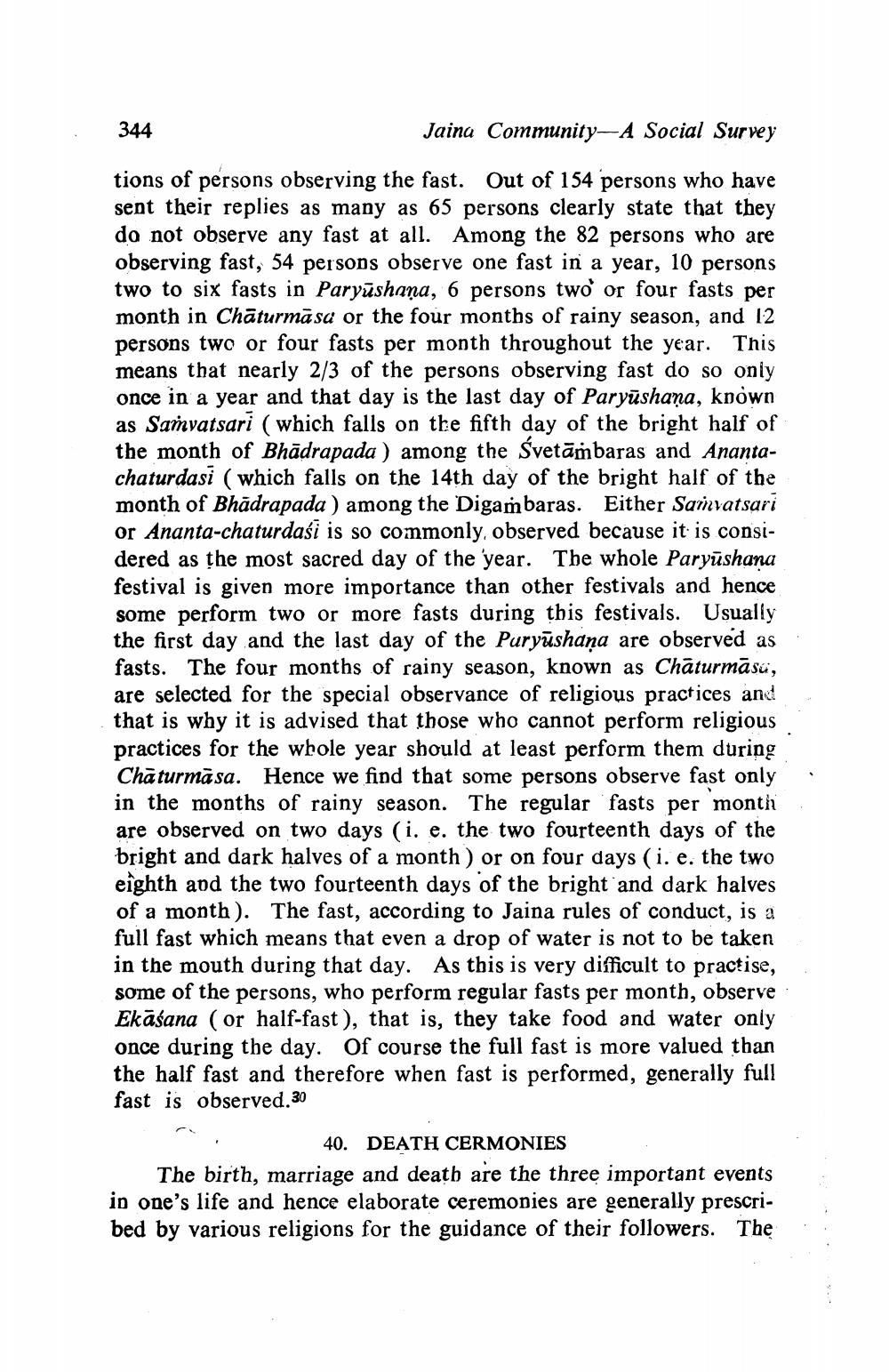________________
Jaina Community-A Social Survey
tions of persons observing the fast. Out of 154 persons who have sent their replies as many as 65 persons clearly state that they do not observe any fast at all. Among the 82 persons who are observing fast, 54 persons observe one fast in a year, 10 persons two to six fasts in Paryushana, 6 persons two or four fasts per month in Chaturmäsa or the four months of rainy season, and 12 persons two or four fasts per month throughout the year. This means that nearly 2/3 of the persons observing fast do so only once in a year and that day is the last day of Paryushana, known as Samvatsari (which falls on the fifth day of the bright half of the month of Bhadrapada) among the Svetambaras and Anantachaturdasi (which falls on the 14th day of the bright half of the month of Bhadrapada) among the Digambaras. Either Samvatsari or Ananta-chaturdasi is so commonly, observed because it is considered as the most sacred day of the year. The whole Paryushaṇa festival is given more importance than other festivals and hence, some perform two or more fasts during this festivals. Usually the first day and the last day of the Paryushana are observed as fasts. The four months of rainy season, known as Chaturmāsu, are selected for the special observance of religious practices and that is why it is advised that those who cannot perform religious practices for the whole year should at least perform them during Chaturmasa. Hence we find that some persons observe fast only in the months of rainy season. The regular fasts per month are observed on two days (i. e. the two fourteenth days of the bright and dark halves of a month) or on four days (i. e. the two eighth and the two fourteenth days of the bright and dark halves of a month). The fast, according to Jaina rules of conduct, is a full fast which means that even a drop of water is not to be taken in the mouth during that day. As this is very difficult to practise, some of the persons, who perform regular fasts per month, observe Ekāśana (or half-fast), that is, they take food and water only once during the day. Of course the full fast is more valued than the half fast and therefore when fast is performed, generally full fast is observed.30
344
40. DEATH CERMONIES
The birth, marriage and death are the three important events in one's life and hence elaborate ceremonies are generally prescribed by various religions for the guidance of their followers. The




